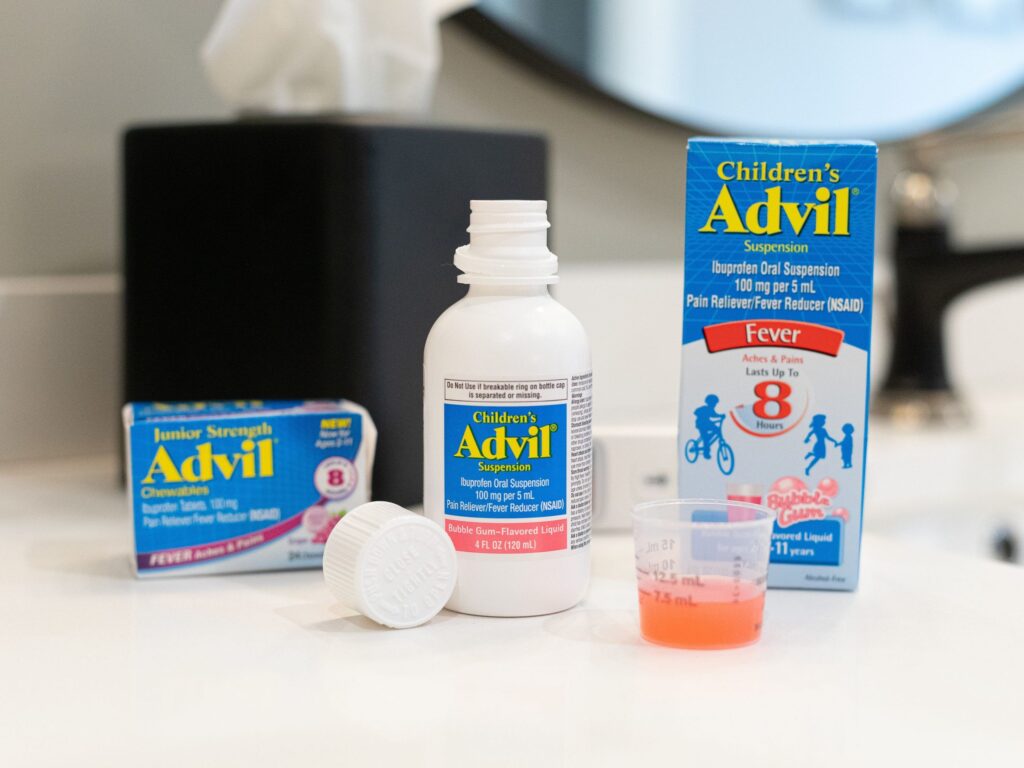As various respiratory illnesses in children spread across the country, pharmacies are looking at alternatives to fill their shelves with children’s medicine.
Liquid Tylenol and other medications a shortage since the summer due to the unprecedented demand for infant and children’s acetaminophen and ibuprofen products.
Some pharmacists were even forced to make the liquid form of children’s painkillers from raw ingredients. It’s been nearly four months since a Beaches pharmacy in Toronto received a shipment of children’s Tylenol or Advil.
Pharmacist Kyro Maseh tells CityNews it was difficult to watch when desperate parents came in or called every 15 minutes looking for the product.
“It’s extremely heartbreaking when I have a parent and can hear the child screaming on the phone,” Maseh said. “It tears my heart apart.”
Ontario Pharmacists Association CEO Justin Bates said manufacturers predict what’s needed based on annual consumption figures, and have been surprised this year.
“We saw more cases of respiratory illnesses and things that we would typically see in the fall with the cold and flu season starting much earlier … it was a 300 percent increase in demand.”
RELATED: Ontario currently over capacity with pediatric ICU beds, new data shows
Bates said the supply chain in Canada is working to combat the shortage by increasing production by 35 percent, but more measures will need to be put in place to address the shortage.
He explained that Health Canada would have to make an exemption to allow the importation of children’s Advil and Tylenol from the US.
“Right now, the regulatory process is that they have to be approved by Health Canada and receive drug identification number requirements, which includes bilingual [language],” Bates said.
The dosage is also slightly different for American products.
“This has to be taken into account when bringing it to Canada, even though it’s the same product in terms of ingredients. It’s safe for American kids, it might be safe for Canadian kids, but the drug facts and warning pieces are slightly different in the Canadian market.”
Health Canada is working to get foreign products into the country amid shortages
Health Canada recently approved the importation of ibuprofen and acetaminophen from the US and Australia, but only for use in hospitals. The distribution of ibuprofen is expected to begin by the end of the week, and efforts are underway to obtain more stock.
“I think it makes perfect sense from a supply chain perspective [to supply hospitals first]. You want to prioritize the most high-risk areas in the system. And then other parts of the system will catch up,” Bates said.
They are now reviewing whether the same imported products may be sold in drug stores and pharmacies.
“All necessary information, such as the information related to warnings and cautions, dosage instructions and ingredients, must be communicated to ensure that parents and caregivers clearly understand what medication they are giving their children,” said a statement from the Minister of Health’s office.

When it comes to bilingual instructions on the packaging, the health minister’s office said in a statement that language requirements “will not cause any delays in getting this critical medication to parents and caregivers.”
Health Canada tells CityNews they have been working with manufacturers on additional proposals to see foreign products made available to pharmacies.
“The department is committed to reviewing proposals as a priority while assessing the safety, quality and efficacy of the proposed drug so that the product can be imported as soon as possible,” said the statement from Health Canada.
Bates said, “I don’t think we have a choice,” when asked if he believed it was a good idea to bring these products to Canada despite not having the bilingual labelling.
“We are in an urgent situation. We’re going into what we expect to be a nasty, bad cold and flu season on top of COVID outbreaks and respiratory illnesses that then lead to bacterial infections like strep throat and earaches, ear infections and pneumonia creating a perfect storm. ” explains Bates.
“This is a short-term measure, but I think the government needs to act urgently to bring those products into the wildlife market,” he added.
Bates tells CityNews he expects the winter to be “a bumpy road” regarding access to these medications.
“I would expect demand to remain quite high. So, hopefully, importing and rationing the number per customer when we get supplies and things of that nature to avoid panic buying will help us. Still, I think it will be uncertain throughout the winter.”
The post ‘We’re in an urgent situation’: Health Canada looks at options to stock children’s medication appeared first on CityNews Calgary.
